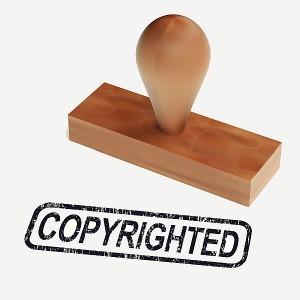DMCA Deadline Affects Copyright Infringement Liability for ISPs
 There is an upcoming deadline regarding the Digital Millennium Copyright Act (DMCA) that many ISPs are just now becoming aware of. I have recently been forwarded notices sent to ISPs from associations letting them know about this new requirement, and the ISPs are asking me if it applies to them. Yes it does. First, some background.
There is an upcoming deadline regarding the Digital Millennium Copyright Act (DMCA) that many ISPs are just now becoming aware of. I have recently been forwarded notices sent to ISPs from associations letting them know about this new requirement, and the ISPs are asking me if it applies to them. Yes it does. First, some background.
What is the Digital Millennium Copyright Act?
The DMCA was signed into law in 1998 to help protect the rights of copyright holders on the Internet. The usual infringement we see is when an internet subscriber illegally downloads copyrighted material like a movie, TV show or song. If a rights holder finds out about this, they will send the ISP the IP address, notifying them that the person using that IP illegally downloaded copyrighted material. The ISP is then supposed to immediately remove the content if it happens to be hosted on servers they control; or, as is more often the case, they are to notify the customer the content was illegally downloaded and needs to be removed from any subscriber devices. They also must take steps to address and prevent multiple repeat offenses including terminating the account if necessary.
What’s the Change?
There is “safe harbor” protection granted under the DMCA, covered in Title II of the Act, which limits liability for ISPs as long as they follow a few requirements. One of those requirements is that the ISP name a “Designated Agent” who is to receive notifications of claimed infringement. And, that Designated Agent information needs to be posted on the Copyright.gov website. When the DMCA was first implemented, this was done through paper forms sent to the Copyright office. To make it easier for copyright holders to have access to those forms, they were scanned and placed online on the copyright.gov website.
In December 2016, the Copyright office introduced an online registration system to replace the old paper-based system and directory. They said at that time that any Designated Agent filings previously done via the old paper system would be invalid after December 31, 2017. This means if an ISP had already filed a Designated Agent by sending in a form, they would need to redo that process in the new on-line system by December 31st of this year, which is just a few days away.
You can see see if you have already have a Designated Agent by checking the old paper-based list here and checking the new on-line system here. If you have an up-to-date listing in the old database but are not in the new one, or you don't have a Designated Agent at all, you can begin the process of setting up a Designated Agent in the new system by registering here and then completing the required information. There is a $6 fee, and must be renewed after 3 years.
Must I Really?
Yes! This is one of the main requirements if you want to have safe harbor status under the DMCA. There can be hefty fines for copyright infringement, and an ISP can be held liable if they do not follow the limited liability provisions in the Act. In addition to registering a Designated Agent with copyright.gov, you also need to make the contact information of your Designated Agent publicly available on your wesbite for rights holders who want to report incidents of copyright infringement to you.
You also must also create and publish a DMCA policy (such as on your website or in your subscriber agreement) that includes what what steps are taken in the case of repeat infringers, and you then must follow those procedures by properly responding to legitimate DMCA copyright notifications. This means notifying customers of infringing material, requiring that they remove it from all devices, and terminating the accounts of repeat infringers.
What if I Don’t?
Cox Communications found out what happens when you don’t comply with the requirements for safe harbor status. In 2016 BMG was awarded $25 million dollars in a jury trial when it was determined that Cox was liable for “contributory infringement” by failing to terminate accounts of repeat infringers. Evidence presented in the case showed that they allowed and even encouraged the reinstatement of accounts after they were terminated, and that this was done willfully to circumvent the DMCA. Cox was ordered to pay BMG another 8 million in legal fees earlier this year.
Let me end by saying I am not a lawyer, so ISPs should read up on the act on their own and seek out the advice of an attorney if they have any questions about compliance.
About the Author: Rick Yuzzi

Never miss a post.
Enter your email to subscribe:
- Ask an Expert (12)
- Blog (12)
- Technology (11)
- Hot Topics (8)
- ask a broadband expert (8)
- DOCSIS (7)
- PNM (7)
- proactive network maintenance (7)
- Industry Perspectives (5)
- BEAD (4)
- Broadband Funding (4)
- Customer Service (4)
- FCC (4)
- IIJA (4)
- PreEqualization Analyzer (4)
- correlation groups (4)
- fiber broadband (4)
- fiber optics (4)
- fiber troubleshooting (4)
- interview (4)
- CGNAT (3)
- Carrier Grade NAT (3)
- DDoS Attacks (3)
- DOCSIS pre-equalization (3)
- Diagnostics (3)
- Distributed Denial of Service Attacks (3)
- GPoN (3)
- IPv4 Conservation (3)
- Purchase IPv4 Addresses (3)
- What is DOCSIS PNM (3)
- broadband infrastructure funding (3)
- fiber (3)
- 5G (2)
- CALEA (2)
- CALEA Compliance (2)
- Codeword Errors (2)
- DOCSIS 3.1 (2)
- Distributed Access Architecture (2)
- Group Delay (2)
- ICFR (2)
- IP traffic (2)
- IPv6 migration (2)
- In Channel Frequency Response (2)
- Main Tap Compression (2)
- Marketing (2)
- Micro Reflections (2)
- Millimeter Wave (2)
- OTT (2)
- Rural Broadband (2)
- Types of DDoS Attacks (2)
- Voice Service (2)
- XGS-PON (2)
- broadband data collection (2)
- customer service (2)
- internet issues (2)
- mid-band spectrum (2)
- mmWave (2)
- network traffic (2)
- network virtualization (2)
- state broadband (2)
- state broadband program (2)
- weather-related Internet issues (2)
- 10G (1)
- BDC (1)
- BDC Availability Data Specification (1)
- BDC User Guide (1)
- BEAD Funding (1)
- Broadband Providers (1)
- Broadband Serviceable Location Fabric (1)
- Broadband Serviceable Locations (1)
- C-Band (1)
- CA Certificate Expiration (1)
- CAF II Requirements (1)
- CAF II Testing (1)
- CALEA SSI Plan (1)
- CBRS (1)
- Carpet Bombing (1)
- Citizens Broadband Radio (1)
- Communications Assistance for Law Enforcement Act (1)
- Connect America Fund (1)
- DAA (1)
- DOCSIS 4.0 (1)
- DOCSIS CA Certificate Expiration (1)
- DPoE (1)
- DPoG (1)
- EPoN (1)
- Excel Text Matching (1)
- Extended Spectrum DOCSIS (1)
- Extending HFC Life (1)
- FCC Broadband Map (1)
- FCC data (1)
- FTTH (1)
- FTTx (1)
- Fidelity Communications (1)
- Full Duplex (1)
- Greenfield Broadband (1)
- Hosted VoIP (1)
- IPTV (1)
- IPv4 (1)
- IPv6 (1)
- IPv6 Transition Plan (1)
- LTE (1)
- Low Latency DOCSIS (1)
- MAC/PHY (1)
- Mobile (1)
- Monitoring (1)
- Motivation for DDoS Attacks (1)
- Multi-Vector DDoS Attacks (1)
- NG-PON2 (1)
- NIST (1)
- NIST Cybersecurity Framework (1)
- NIST requirements (1)
- NetFlow (1)
- Network Traffic Management, (1)
- OTT video streaming (1)
- Private Access License (PAL) (1)
- RDOF Auction (1)
- RDOF Voice Requirements (1)
- Remote MAC/PHY (1)
- Remote PHY (1)
- Robocalls (1)
- Rural Broadband Network Advancement Act (1)
- Rural Digital Opportunity Fund (1)
- SSI (1)
- STIR/SHAKEN (1)
- Small Cells (1)
- Streaming (1)
- System Security and Integrity Plan (1)
- TV Viewership Analytics (1)
- TWDM-PON (1)
- TruVizion (1)
- Underserved Locations (1)
- Unserved Locations (1)
- Upstream Analyzer (1)
- Videos (1)
- VoIP (1)
- VoIP revenue (1)
- Wired Broadband (1)
- broadband data collection program (1)
- broadband deployment (1)
- broadband support (1)
- cableLabs (1)
- caf ii (1)
- case study (1)
- cloud-based VoIP (1)
- commercial VoIP (1)
- commercial VoIP revenue (1)
- cpe spectrum capture (1)
- customer service tip (1)
- cyber attacks (1)
- cybersecurity (1)
- dhcp (1)
- downstream spectrum issues (1)
- dual stack implementation (1)
- dynamic spectrum sharing (1)
- electric membership cooperatives (1)
- fiber Internet (1)
- fiber deployment (1)
- forward path monitoring (1)
- free download (1)
- full band capture (1)
- holiday customer service (1)
- holiday tech support (1)
- ingress (1)
- middle mile grant program (1)
- net neutrality (1)
- open access fiber (1)
- open access fiber network (1)
- open access networks (1)
- pppoa (1)
- pppoe (1)
- pre-equalization (1)
- reduced maintenance costs (1)
- remote spectrum analyzer (1)
- return path (1)
- scott helms (1)
- technical paper (1)
- technical support (1)
- vTDR (1)
.
About the Blog
Bloggers
Comments Policy
Guest Blogging
Privacy Policy

Leave a comment: